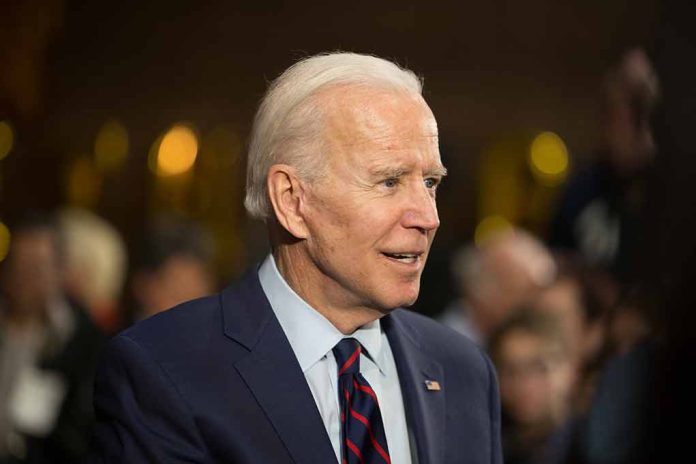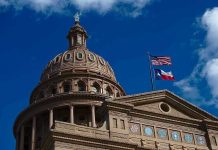
President Biden threatens to veto the new GOP funding bill, citing concerns over national security and government functionality.
At a Glance
- President Joe Biden threatens to veto House Republicans’ six-month spending bill.
- The administration argues the bill will harm the military and lacks adequate disaster aid.
- The bill includes a requirement for proof of citizenship to register to vote.
- House Minority Leader Hakeem Jeffries criticizes the bill, calling it “unserious and unacceptable.”
Biden’s Warning to GOP Bill
President Biden has issued a stern warning about his intent to veto a stopgap funding bill introduced by House Republicans. Biden’s administration argues the bill fails to address crucial sectors, including national security and disaster aid, and jeopardizes federal services by setting them at “insufficiently low levels.” The spat highlights the ongoing tug-of-war over budget distribution between the White House and Republican lawmakers.
The bill proposes temporary funding through March 2025, with a provision demanding proof of citizenship for voter registration. This requirement has been labeled by the White House as unnecessary and potentially disenfranchising. Advocates of the bill argue this measure will ensure election integrity. Democrats, however, contend that such legislation is redundant and could disenfranchise eligible voters.
Biden threatens to veto House GOP spending extension, noncitizen voting ban billhttps://t.co/GO9hyDI2F5 pic.twitter.com/mJNa5R1Zng
— The Washington Times (@WashTimes) September 9, 2024
Concerns Over National Security
The Biden administration has raised significant concerns about the bill’s impact on national security. According to a White House statement, the six-month stopgap is “especially irresponsible” for defense funding. The administration warns that such measures could erode military advantage relative to countries like China, degrade readiness, and fail to support troops adequately.
“This continuing resolution (CR) would place agencies at insufficiently low levels—both for defense and non-defense—for a full six months, rather than providing a short-term stopgap to provide the Congress more time to work on full-year bills,” stated the Office of Management and Budget (OMB).
Disaster aid is another critical aspect where the administration believes the bill falls short. While the bill includes $10 billion for FEMA’s Disaster Relief Fund, it excludes essential funding for housing, economic development, and infrastructure in over 20 states and territories. The administration opposes this omission, arguing it could significantly affect disaster recovery efforts.
White House issues veto threat on six-month stopgap spending bill the House will vote on later this week.
"Instead of working in a bipartisan manner to keep the Government open and provide emergency funding for disaster needs, House Republicans have chosen brinksmanship." pic.twitter.com/4oBc0tAZBl
— Jennifer Shutt (@JenniferShutt) September 9, 2024
Internal Opposition and Bipartisanship
House Republicans appear divided over the stopgap spending bill, with Rep. Thomas Massie announcing his intention to vote against it, citing excessive spending. House Minority Leader Hakeem Jeffries called the proposal “unserious and unacceptable.” The White House accused House Republicans of brinksmanship, urging a bipartisan effort to avoid a government shutdown.
The bill is expected to face stiff opposition in the Senate, where Senate Democrats are unlikely to agree without negotiations. As the September 30th deadline for the 2024 fiscal year approaches, Congress must authorize new spending to prevent a federal government shutdown.
Sources:
- Biden threatens to veto Johnson spending plan
- Biden threatens to veto House GOP spending extension, noncitizen voting ban bill
- Biden would veto GOP government funding proposal, White House says
- Biden Threatens to Veto GOP Stopgap Funding Bill, Citing National Security, Election Security Provisions













